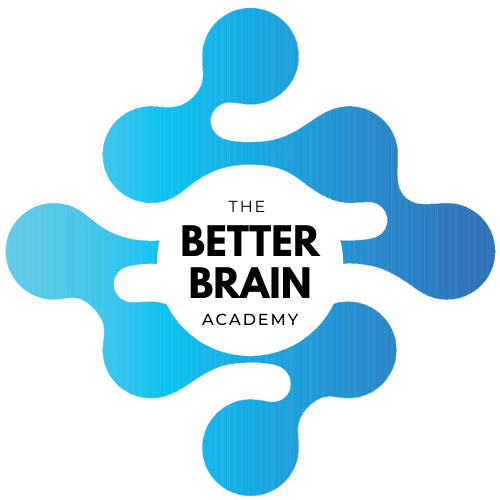Mindfulness Based Therapy or Self-Compassion
By The Better Brain Academy

Most people experience stress, anxiety, or depression at some point in their lives, and often, it is an ongoing struggle that affects them daily. There are different ways to combat and work through these feelings including practicing mindfulness and self-compassion. A recently published study in Frontiers in Psychology looks at whether focusing on self-compassion is as effective as mindfulness-based therapy for improving one’s mental health.
It’s important to understand the difference between Mindfulness-Based Cognitive Therapy (MBCT) and Compassion Focused Therapy (CFT). These are the two most widely used clinical approaches for treating depression, anxiety, and stress. MBCT is based on Mindfulness-Based Stress Reduction and includes incorporating breathwork, yoga, meditation, body scans, and practices to explore thoughts and increase mindfulness.
CFT focuses on building compassion by practicing self-compassion along with mindfulness exercises. Both have their different benefits and yield different results, which researchers compared to understand how each approach can help those experiencing depression, anxiety, and stress.
At a residential rehabilitation and health clinic in Iceland, 58 participating adult residents were split into different groups with 20 attending an MBCT group and another 18 in a CFT group. The remaining 20 participants received no mindfulness-based treatment. The MBCT and CFT group members were given eight two-hour-long sessions over four consecutive weeks. They were required to attend at least four sessions to receive an adequate ‘dose’ of treatment.
Participants completed a questionnaire about their experiences with depression, stress, and anxiety as well as mindfulness, self-compassion and rumination at the beginning of the study. One month later, only 42 participants — 17 from the MBCT group, 13 from the CFT group, and 13 from the no-treatment control group completed the survey. Participants receiving treatment reported significantly less depression, stress, anxiety, and rumination, as well as increased mindfulness and self-compassion as a result. The control group reported no change.
The study also looked at each person’s initial tendency to ruminate, which means to get stuck in unpleasant thoughts, and how it related to how mindful they were. Researchers found that those in the MBCT group who reported more rumination prior to treatment showed a bigger increase in mindfulness scores, compared to those who ruminate less.
Meanwhile, everyone in the CFT group showed increases in mindfulness, regardless of how much they tended to ruminate beforehand. As a result, the study suggests that people who tend to get stuck in their thoughts may be better served by programs that include compassion and self-compassion training.
The authors say the results of the study suggest that for some, MBCT or CFT may help to ease depression, stress, and anxiety, as well as the destructive thoughts that feed them. In the end, regardless if someone chooses to see a therapist on an ongoing basis or take workshops to learn how to conduct these practices, they were able to significantly reduce these experiences. Understanding how you think and keeping track of daily thoughts can help you understand which treatment path to take. Each has its own benefits and we recommend you try both to see which therapy works best for you.
Share
Tweet
Share
Mail
Copyright 2023
All Rights Reserved
The Better Brain Academy
The Better Brain Academy
Kelowna, BC Canada
250-575-7741
THE FINE PRINT
While there may be information on The Better Brain Academy website relating to certain conditions, should a medical condition exist, promptly see your own physician or health provider. The Better Brain Academy does not offer medical diagnosis. Information presented is for educational purposes only and is not intended to provide or replace medical advice. The Better Brain Academy makes no claims that it can cure any conditions, including any conditions referenced on its website or in print materials, including ADHD, anxiety, depression, traumatic brain injury, post-traumatic stress disorder, stress, sleep disorders, Alzheimer’s and dementia. If you take prescription medications for any of these conditions, you should consult with your physician before discontinuing use of such medications.
